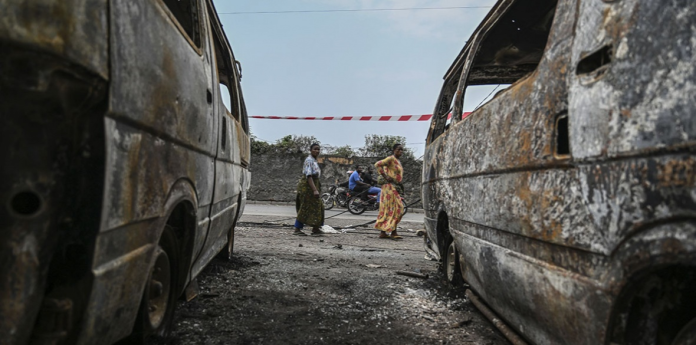Hospitals in Goma, a major city in eastern Congo, are struggling to address an influx of hundreds of wounded patients as fighting escalates between government forces and Rwanda-backed M23 rebels.
The conflict, which displaced nearly 6.5 million people, sparked one of the world’s most severe humanitarian crises, with medical facilities overwhelmed and supplies running critically low. Since the M23 rebels launched their offensive on Goma on 26 January, more than 700 people were killed and nearly 3,000 wounded, according to officials.
Kyeshero Hospital, operated by Doctors Without Borders (MSF), is also severely overcrowded, often operating at over 200% capacity. Surgeon Johnny Kasangati reported removing 48 bullets in a single day, highlighting the intensity of the violence.
The fighting disrupted supply chains, leaving hospitals without essential medical resources. Goma’s international airport, a key entry point for supplies, is now under rebel control, exacerbating the crisis. Aid groups’ stockpiles had also been looted, forcing medical staff to rely on dwindling reserves.
Transporting patients to other facilities, such as Bukavu in South Kivu, has become impossible due to suspended boat services and blocked roads. This has left hospitals in Goma to bear the full brunt of the crisis.
Rising death toll and disease risks
The conflict’s death toll continues to rise, with Congo’s government confirming 773 deaths and 2,880 injuries. Morgues are overflowing, and fears of mass graves and disease outbreaks are growing, according to Jules Kafitiye, medical director at Maternité de la Charité Hospital.
We had 66 bodies here. Fifty-six were transferred to the provincial hospital, where the morgue has more space than ours.
The M23 rebels, backed by an estimated 4,000 Rwandan troops, claim to be defending ethnic Tutsis in Congo. Rwanda accuses the Congolese military of collaborating with Hutu militias linked to the 1994 Rwandan genocide.
The conflict, rooted in decades of ethnic tensions, has turned eastern Congo into a battleground for over 100 armed groups vying for control of its mineral-rich territories.
As hospitals struggle to cope and the humanitarian crisis deepens, the international community faces mounting pressure to intervene and address the violence.
